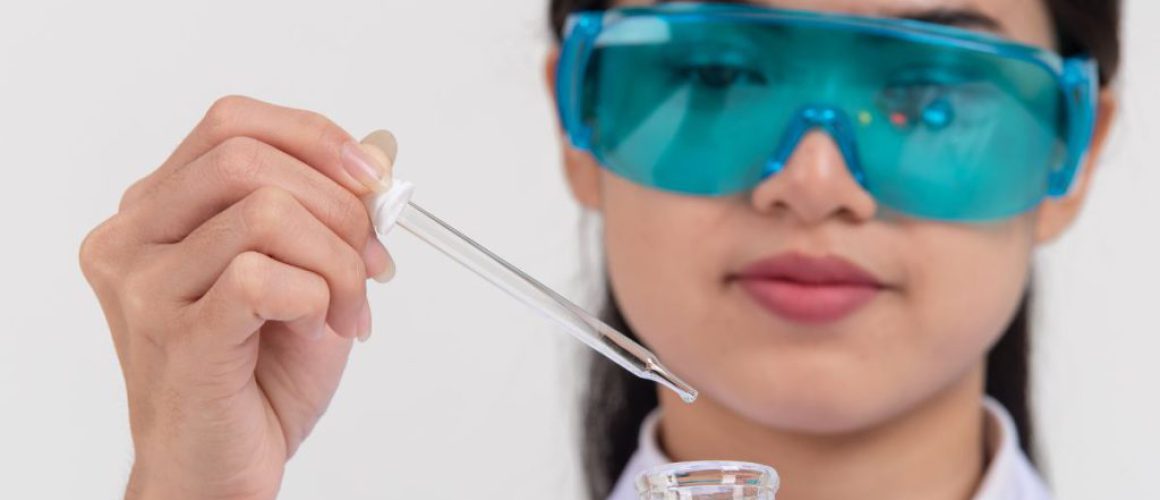Career Prospects: Clinical laboratory technician/medical laboratory technician
Table of Contents
Laboratory Technician
| Education | Job Duties | Work Environment | Career Outlook |
|---|---|---|---|
| Associate’s degree in medical laboratory technology or related field | Perform diagnostic tests, analyze results, maintain lab equipment | Hospitals, diagnostic labs, doctors’ offices, research facilities | Projected to grow 7% from 2019 to 2029 |
Being a medical laboratory technician is not just a job, it’s a calling. It’s about making a difference, one test at a time.
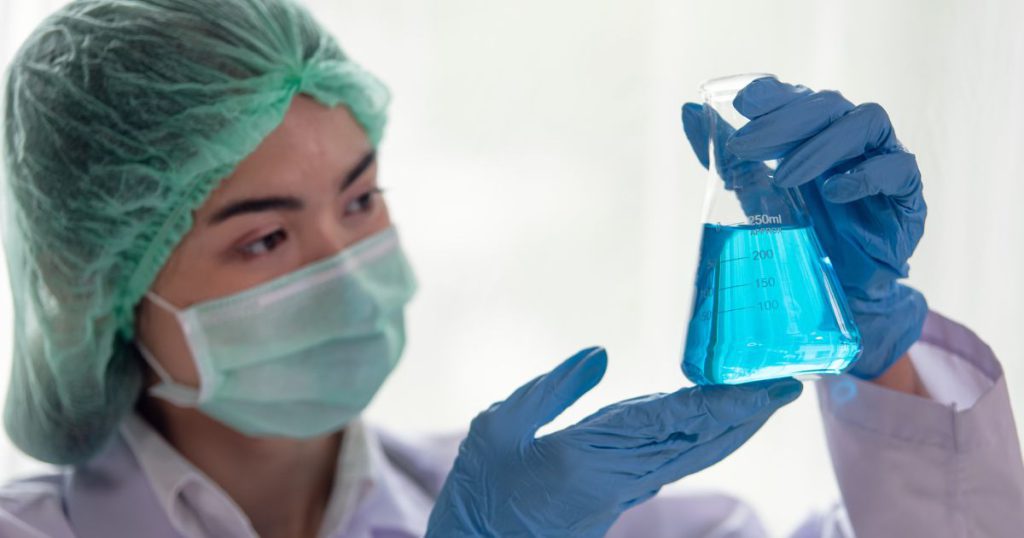
Ever wondered about the wizards behind the curtain in healthcare, the clinical laboratory technicians? As a medical technology student, I’ve been fascinated by their world of test tubes and microscopes. Stick around, and I’ll reveal the magic they perform daily!
Introduction
What is it like to be a medical laboratory technician, the unsung heroes in the healthcare industry? These professionals, often working behind the scenes, play a pivotal role in patient care. As a medical laboratory technician, you’re the Sherlock Holmes of the healthcare world, solving medical mysteries one test at a time. You’re the bridge between the patient and the doctor, providing vital information that informs diagnosis and treatment.
In this article, we’ll delve into the world of medical laboratory technicians, exploring what they do, how to become one, and the career prospects in this field. Whether you’re a student considering this career path, like myself, or just curious about the people in white lab coats, this article will provide a comprehensive overview of the profession. So, let’s put on our lab goggles and dive in!
What is a medical laboratory technician?
Let’s start by demystifying the role of a medical laboratory technician and the pivotal part they play in the healthcare industry. A medical laboratory technician, often referred to as a lab tech or MLT, is a healthcare professional who performs diagnostic tests in a laboratory setting. These tests range from simple blood glucose checks to more complex tests that detect diseases like cancer or diabetes.
Top 5 Skills for a Medical Laboratory Technician
- Technical skill
- Scientific knowledge
- Attention to detail
- Analytical ability
- Communication skills
Medical laboratory technicians work with a variety of samples, including blood, body fluids, and tissues, to detect abnormalities. They use sophisticated lab equipment to analyze these samples, interpret the results, and report their findings to physicians. But their role doesn’t stop there. They also maintain the lab equipment, ensuring it’s in optimal working condition, and adhere to strict safety protocols to prevent contamination.
Top 5 Responsibilities of a Medical Laboratory Technician
- Performing diagnostic tests
- Analyzing test results
- Maintaining lab equipment
- Adhering to safety protocols
- Reporting findings to physicians
What is the difference between a clinical laboratory technician and a medical laboratory technician?
The terms ‘clinical laboratory technician’ and ‘medical laboratory technician’ are often used interchangeably, but there are subtle differences. Both roles involve performing diagnostic tests in a laboratory setting, but the type of lab they work in can vary. A medical laboratory technician typically works in a medical or diagnostic lab, performing tests that aid in the diagnosis and treatment of diseases.
On the other hand, a clinical laboratory technician might work in a research or public health lab, performing tests that contribute to the broader understanding of diseases and health conditions. Despite these differences, both roles require similar education and skills, including attention to detail, technical ability, and a strong understanding of scientific concepts.
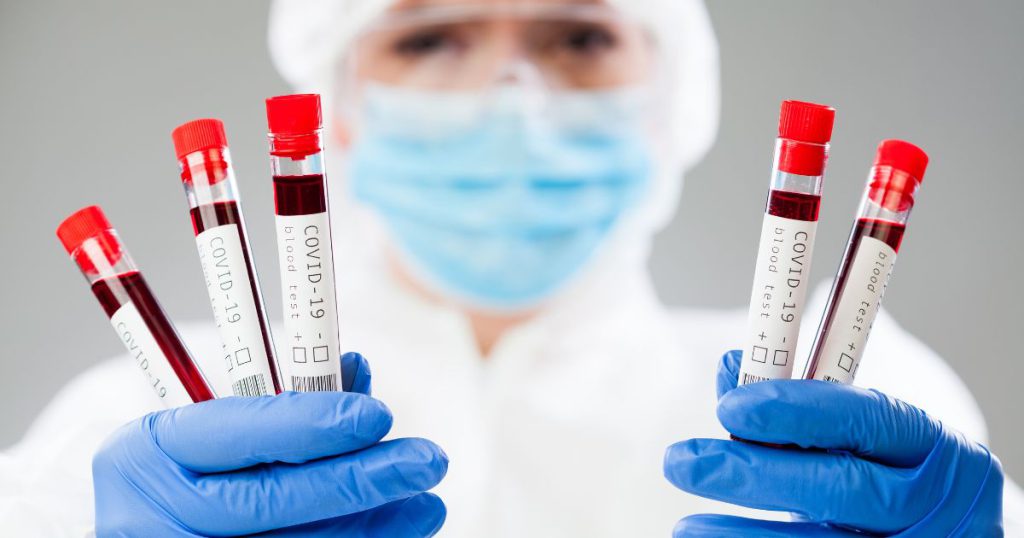
What’s the difference between a Technician and a Technologist?
You might have heard the terms ‘medical laboratory technician’ and ‘medical laboratory technologist’ used interchangeably. While they both work in the same field and perform similar tasks, there are key differences in their roles, education, and responsibilities. A medical laboratory technician typically holds a two-year associate degree and performs routine diagnostic tests under the supervision of a technologist or lab manager.
On the other hand, a medical laboratory technologist, also known as a medical lab scientist, usually holds a four-year bachelor’s degree. They perform more complex tests, supervise technicians, and may be involved in research. While technicians carry out the day-to-day testing, technologists often take on more analytical roles, interpreting results and making recommendations.
The Path to Becoming a Medical Laboratory Technician
Embarking on a career as a medical laboratory technician begins with the right degree program and a thirst to learn. Most medical laboratory technicians hold an associate’s degree in medical laboratory technology or a related field. These programs, often offered by community colleges or vocational schools, provide a blend of classroom learning and hands-on lab training.
Key Skills for a Medical Laboratory Technician
| Technical Skills | Analytical Skills | Attention to Detail | Communication Skills |
|---|---|---|---|
| Ability to operate lab equipment and perform tests | Ability to interpret test results and identify abnormalities | Precision in conducting tests and recording results | Ability to report findings clearly to physicians and other healthcare professionals |
Coursework typically includes subjects like biology, chemistry, microbiology, and statistics, along with specialized courses in clinical laboratory skills. After completing their degree, aspiring lab techs must also pass a certification exam to demonstrate their competency. Some states also require lab techs to be licensed, so it’s important to check the requirements in your area.
Steps to Becoming a Medical Laboratory Technician
| Step | Description |
|---|---|
| 1. Education | Earn an associate’s degree in medical laboratory technology or a related field |
| 2. Certification | Pass a certification exam to demonstrate competency |
| 3. Licensing | Obtain a license if required in your state |
| 4. Experience | Gain experience through entry-level positions or internships |
Daily Life of a Medical Laboratory Technician
A day in the life of a medical laboratory technician is never dull, filled with diagnosis, treatment plans, and a whole lot of lab work. Lab techs usually work in hospitals, diagnostic labs, or doctors’ offices. Their day often starts with reviewing the tests ordered by physicians. They then collect samples from patients, which could be blood, urine, or other body fluids.
Once the samples are collected, lab techs prepare them for testing. This could involve adding reagents, using a centrifuge, or placing samples into testing equipment. After the tests are run, lab techs analyze the results, looking for abnormalities that could indicate a health issue. They then report their findings to the physician, who uses this information to diagnose and treat the patient.
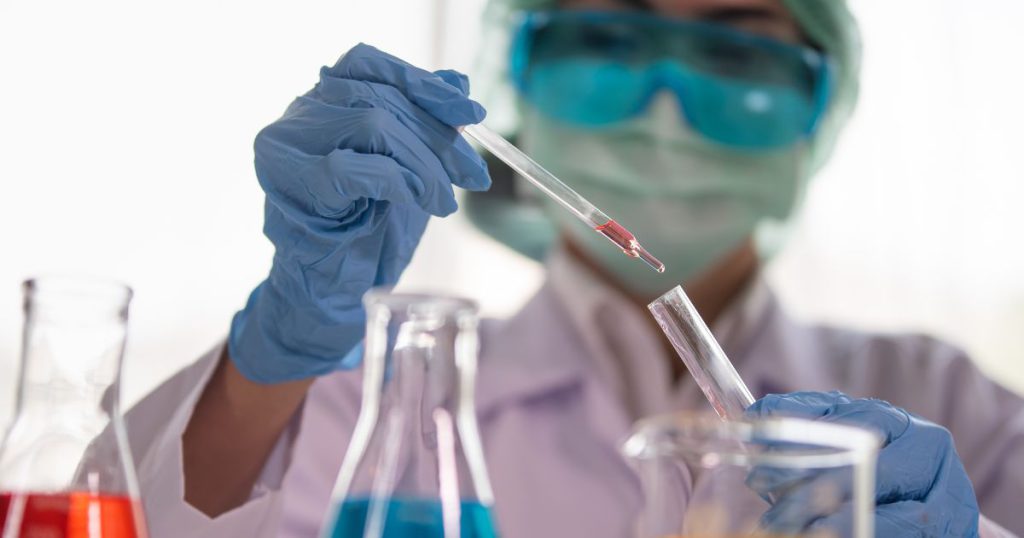
Career Prospects and Growth Opportunities
The career path of a medical laboratory technician is not a straight line but a ladder of opportunities waiting to be climbed. The demand for medical laboratory technicians is expected to grow in the coming years, driven by an aging population and the need for more diagnostic tests. According to the Bureau of Labor Statistics, employment of medical laboratory technicians is projected to grow 7 percent from 2019 to 2029, faster than the average for all occupations.
Career Advancement Opportunities for Medical Laboratory Technicians
| Position | Description |
|---|---|
| Medical Laboratory Scientist | Perform more complex tests, supervise technicians, may be involved in research |
| Lab Manager | Oversee the operations of a lab, manage staff, ensure compliance with regulations |
| Lab Director | Responsible for the overall direction and strategy of a lab, make high-level decisions |
Beyond job security, the field also offers opportunities for advancement. With additional education and experience, a lab tech can become a medical laboratory scientist, a lab manager, or even a lab director. Some lab techs also choose to specialize in a particular area, such as microbiology or immunology, opening up even more career opportunities.
Top 5 Industries Employing Medical Laboratory Technicians
- Hospitals
- Diagnostic labs
- Doctors’ offices
- Research facilities
- Educational institutions
The Impact of a Medical Laboratory Technician in Healthcare
Medical laboratory technicians are the backbone of the healthcare industry, contributing significantly to diagnosis and treatment processes. They provide the data that doctors rely on to make informed decisions about patient care. Without lab techs, doctors would be guessing in the dark, and patients would not receive the accurate diagnoses and targeted treatments they need.
But the impact of a medical laboratory technician goes beyond the lab. By providing accurate and timely test results, they help ease patient anxiety and contribute to better health outcomes. They also play a role in public health, helping to track and control disease outbreaks.
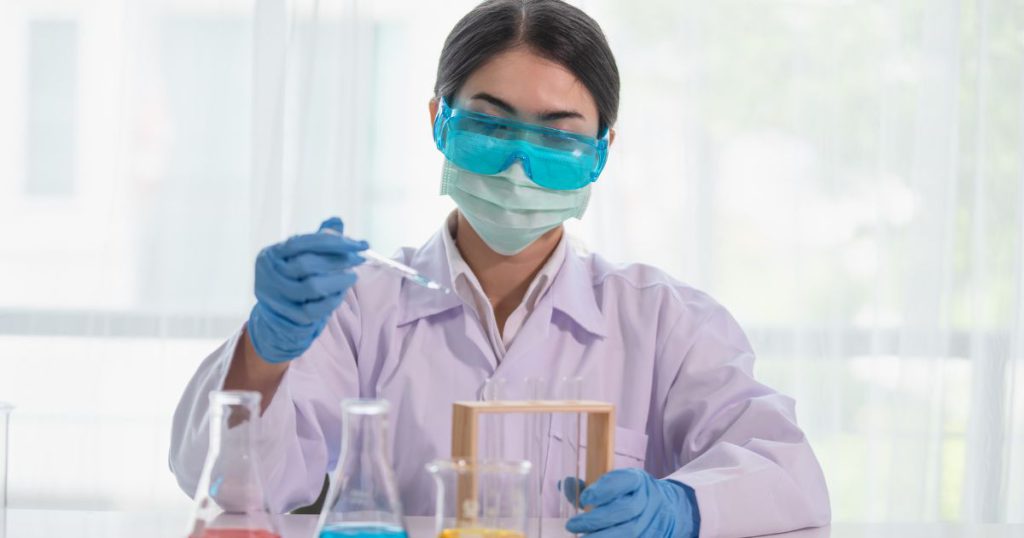
Personal Experiences and Insights
As a student studying medical technology, I’ve had the opportunity to learn about this profession and even get some hands-on experience. I’ve been amazed by the complexity of the work and the dedication of the professionals in this field. From my observations, being a medical laboratory technician requires a blend of technical skill, scientific knowledge, and a keen eye for detail.
One thing that has stood out to me is the importance of continuous learning in this field. With new diseases emerging and technology advancing, medical laboratory technicians must stay up-to-date with the latest developments. This commitment to learning and improvement is something I admire and strive to emulate in my own studies.
Behind every great doctor is a great medical laboratory technician. They are the unsung heroes of healthcare, providing the data that informs diagnosis and treatment.
Conclusion
Embarking on a career as a medical laboratory technician is not just about securing employment; it’s about making a difference in the healthcare industry. Whether you’re diagnosing diseases, conducting research, or helping a patient understand their health, the work you do as a lab tech has a real impact.
As a student in this field, I’m excited about the possibilities that lie ahead. I’m looking forward to joining the ranks of these unsung heroes and contributing to patient care in my own way. If you’re considering a career in this field, I hope this article has given you a clearer picture of what to expect. And if you’re already on this path, I salute you for the important work you do.
Call to Action
If you’re ready to explore, study, and gain knowledge in this exciting field, the path of a medical laboratory technician might just be the perfect fit for you. It’s a career that offers a blend of science, technology, and patient care, with plenty of opportunities for growth and advancement. So why wait? Start your journey today, and who knows, you might just be the next Sherlock Holmes of the healthcare world!
Disclaimer
This article is intended for informational purposes only. It is not meant to be a substitute for professional medical advice, diagnosis, or treatment. Always seek the advice of your physician or other qualified health provider with any questions you may have regarding a medical condition or career decisions.
This post is part of my Career Prospects Category. Check out the other posts: Clinical laboratory technologist/medical technologist and Histotechnologist. For more Career Prospects, check out the page Medical Technology Career Prospects: A Student’s Perspective
Frequently Asked Questions
What does a medical laboratory technician do?
A medical laboratory technician performs a variety of diagnostic tests in a laboratory setting. They work with different types of samples, such as blood, body fluids, and tissues, to detect abnormalities. They use sophisticated lab equipment to analyze these samples, interpret the results, and report their findings to physicians.
How can I become a medical laboratory technician?
To become a medical laboratory technician, you typically need to earn an associate’s degree in medical laboratory technology or a related field. These programs provide a blend of classroom learning and hands-on lab training. After completing your degree, you’ll also need to pass a certification exam to demonstrate your competency.
What’s the difference between a medical laboratory technician and a medical laboratory technologist?
While both roles involve performing diagnostic tests in a lab, there are key differences in their roles, education, and responsibilities. A medical laboratory technician typically holds a two-year associate degree and performs routine diagnostic tests under the supervision of a technologist or lab manager. A medical laboratory technologist, also known as a medical lab scientist, usually holds a four-year bachelor’s degree, performs more complex tests, supervises technicians, and may be involved in research.
What is the job outlook for medical laboratory technicians?
The demand for medical laboratory technicians is expected to grow in the coming years, driven by an aging population and the need for more diagnostic tests. According to the Bureau of Labor Statistics, employment of medical laboratory technicians is projected to grow 7 percent from 2019 to 2029, faster than the average for all occupations.
Where do medical laboratory technicians work?
Medical laboratory technicians work in a variety of settings, including hospitals, diagnostic labs, doctors’ offices, and research facilities. They may work in a general lab, performing a wide range of tests, or they may specialize in a specific area, such as microbiology or immunology.
What skills are important for a medical laboratory technician?
Medical laboratory technicians need a strong understanding of scientific concepts, technical ability to operate lab equipment, and attention to detail to accurately interpret test results. They also need good communication skills to report their findings to physicians and other healthcare professionals.
What is the difference between a clinical laboratory technician and a medical laboratory technician?
While the terms are often used interchangeably, a medical laboratory technician typically works in a medical or diagnostic lab, performing tests that aid in the diagnosis and treatment of diseases. A clinical laboratory technician might work in a research or public health lab, performing tests that contribute to the broader understanding of diseases and health conditions.
What are the challenges and rewards of being a medical laboratory technician?
Being a medical laboratory technician can be challenging, given the responsibility of dealing with people’s health and the technical nature of the work. However, it’s also highly rewarding. Lab techs play a crucial role in patient care, and there’s a sense of satisfaction in solving medical mysteries and contributing to a patient’s recovery.
Read More
Faculty of Medical Technology – Mahidol University
Sean Schepers is a third-year Medical Technology student at Mahidol University with a passion for all things health and medicine. His journey into the world of medicine has led him to explore various fields. Sean's blog posts offer a unique perspective, combining his academic insights with personal experiences. When he's not studying or blogging, Sean enjoys keeping up with politics and planning his future career in medicine.
In addition to his studies, Sean serves as the chairman of the Rights, Liberties, and Welfare Committee, a role that reflects his commitment to advocacy and social justice. Beyond his academic pursuits, Sean offers tutoring services in English and Biology, further demonstrating his dedication to education and mentorship. His journey is one of continuous discovery, and he invites others to join him as he explores the dynamic and transformative world of medical technology.

